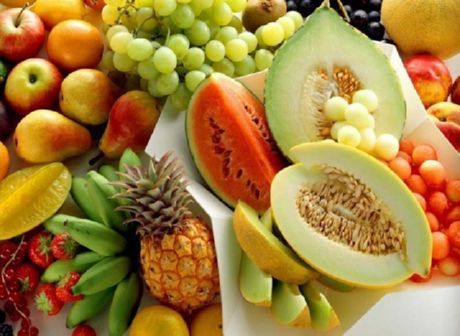Medical expert of the article
New publications
Vitamins against stress
Last reviewed: 06.07.2025

All iLive content is medically reviewed or fact checked to ensure as much factual accuracy as possible.
We have strict sourcing guidelines and only link to reputable media sites, academic research institutions and, whenever possible, medically peer reviewed studies. Note that the numbers in parentheses ([1], [2], etc.) are clickable links to these studies.
If you feel that any of our content is inaccurate, out-of-date, or otherwise questionable, please select it and press Ctrl + Enter.
Vitamins are an excellent remedy against stress. Including because stress increases the consumption of these useful substances almost twice, or even more. Which vitamins help fight stress and do they help at all?
Vitamins in the fight against stress

In order to properly counteract stress, it is very important to stock up on B vitamins first of all. These are the main helpers in the fight against stress. They help to improve the functioning of the nervous system. It is also advisable to include vitamins E, C, and beta-carotene in your anti-stress complex.
These drugs in combination have a simply magical effect on the fight against stress, especially if taken correctly, in the doses prescribed by the doctor.
Of course, you should remember that vitamins alone will not be enough to get out of stress. You also need psychological methods of influence and sports. All this together will help you cope with any condition.
There is another nuance when taking vitamins. If you took all the vitamins you needed before the onset of stress, then you should not increase the dose of anti-stress drugs - this will not give the desired effect.
Anti-stress effect of vitamin C
As soon as a person is overtaken by stress, his body begins to actively produce adrenaline and cortisol – the so-called stress hormones.
Vitamin C plays a significant role in influencing these hormones. It softens their effects and helps us cope with difficult situations more easily.
Vitamin C also helps to cope with neuroses associated with insufficient sunlight. It also helps a person to acclimatize more quickly in unfamiliar conditions. For example, during a flight or in a country with a different climate.
 [ 1 ], [ 2 ], [ 3 ], [ 4 ], [ 5 ]
[ 1 ], [ 2 ], [ 3 ], [ 4 ], [ 5 ]
How Much Vitamin C Do You Need to Fight Stress?
The daily norm of vitamin C is 2-3 grams, or 20-30 mg. If you take more, the excess will be excreted from the body. Therefore, it is important to adhere to its correct doses.
Where to get vitamin C to fight stress?
The highest concentration of vitamin C is found in fresh (we emphasize this word!) vegetables, fruits and berries. These include bell peppers, rose hips, green peas, black and red currants, rowan berries, cabbage, especially Brussels sprouts, and strawberries.
Sprouted wheat grains are very good as a source of vitamin C. During germination, vitamin C and ascorbic acid accumulate in them. A very good natural source of vitamins!
Remember that we have not said in vain that vitamin C should be taken from fresh products. During storage and heat treatment, the vitamins in them are destroyed, and with each passing day there are fewer of them. The countdown is in days and hours.
If you want to get enough vitamin C from vegetables, fruits and berries, wash them, cut them and process them just before serving.
Anti-stress effect of vitamin C
Vitamin B is a very good means for supporting the body during or after stress. It can be taken in capsules (very convenient, you can calculate the dose) and also taken from live products.
An excellent source of vitamin B is bananas. Yes, inexpensive and ordinary bananas. If you feel nervous, a banana will help to muffle or soften the feeling of anxiety. Vitamin C in its composition is able to suppress the action of the so-called stress hormones cortisol and adrenaline.
Banana is also very good for improving the external and internal condition of hair, nails and skin. Its structure is well accepted by the gastrointestinal tract. Moreover, even by those people who have chronic gastritis.
By the way, during stress, the need for vitamin B increases significantly. Then you need a vitamin complex prescribed by a doctor in the right doses, because you may simply not guess with the content of vitamin B in products. It may simply not be enough.
Where else can I get vitamin B?
In addition to vitamin complexes, vitamin B can be taken from cereals (preferably not peeled), vegetables and fruits (fresh, we have already talked about this). To make your menu correct, ask your nutritionist to balance it.
General information about the correct vitamin menu is as follows: the maximum of what is described above and a reasonable amount of protein. Namely: fatty meats, dairy products and eggs.
Replenish your vitamin reserves and forget about stress and ailments. Be healthy and happy!

